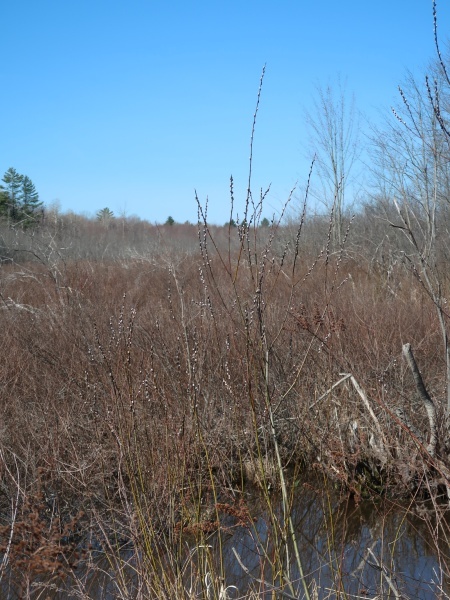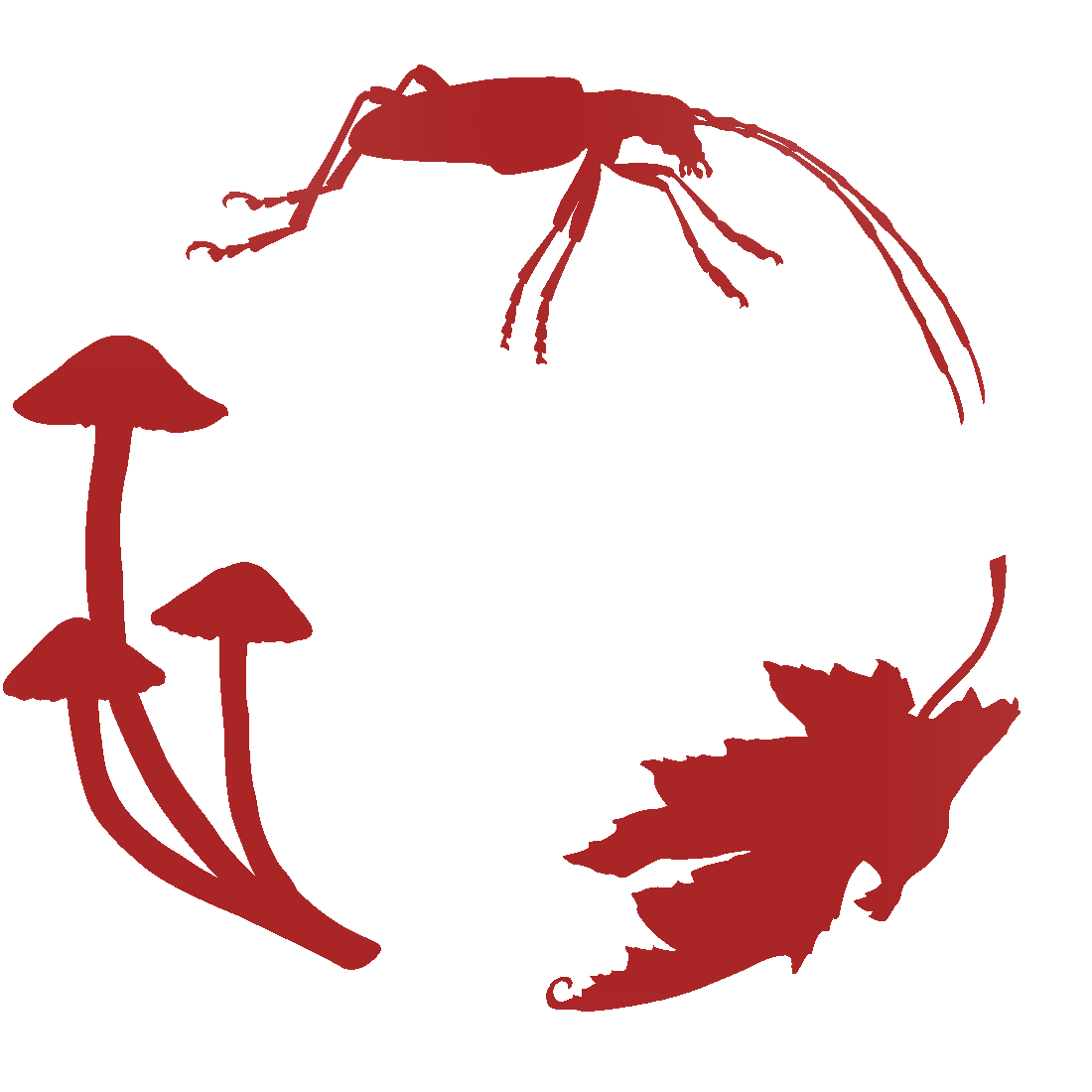
Source: OWSL
Salix discolor
Pussy Willow
Saule discolore
Synonyms
American pussy willow
glaucous willow
large pussy willow
lowland pussy willow
chatons
saule p'tits-minous
No seeds available for this plant.
We currently accept seeds for this plant
Bloom Colour: White
Bloom Period: Apr - May
Max Height: 15.0 feet
Max Width: 12.0 feet (spreads by rhizome)
Light Condition:
 More than 6 hours of direct sun a day
More than 6 hours of direct sun a day
 More than 2 or 3 hours but less than 6 hours of direct sun a day
More than 2 or 3 hours but less than 6 hours of direct sun a day
 Less than 2 or 3 hours of direct sun a day
Soil conditions:
Less than 2 or 3 hours of direct sun a day
Soil conditions:
 Tolerates medium soil condition
Tolerates medium soil condition
 More than 6 hours of direct sun a day
More than 6 hours of direct sun a day
 More than 2 or 3 hours but less than 6 hours of direct sun a day
More than 2 or 3 hours but less than 6 hours of direct sun a day
 Less than 2 or 3 hours of direct sun a day
Less than 2 or 3 hours of direct sun a day
 Tolerates medium soil condition
Tolerates medium soil condition
Lifespan:
Perennial
plants that will that come back year after year
Plant is
dioecious
Need a male and female plant to produce seeds
Gardener Experience:
 Self-seeding
Self-seeding
 Self-seeding
Self-seeding
Landscape Uses:
 Suitable for wetland garden
Suitable for wetland garden
 Suitable for shoreline rehabilitation
Suitable for shoreline rehabilitation
 Suitable for school gardens
Suitable for school gardens
 Suitable for woodland gardens
Suitable for woodland gardens
 Can be used as a hedge
Can be used as a hedge
 Suitable for wetland garden
Suitable for wetland garden
 Suitable for shoreline rehabilitation
Suitable for shoreline rehabilitation
 Suitable for school gardens
Suitable for school gardens
 Suitable for woodland gardens
Suitable for woodland gardens
 Can be used as a hedge
Can be used as a hedge
Ecological Benefits:
 Supports pollinators
Supports pollinators
 Bee host
Bee host
 Keystone species
Keystone species
 Supports pollinators
Supports pollinators
 Bee host
Bee host
 Keystone species
Keystone species
Tolerates:
 Tolerates salt conditions
Tolerates salt conditions
 Tolerates foot traffic around the plant
Tolerates foot traffic around the plant
 Tolerates limestone conditions
Tolerates limestone conditions
 Tolerates sandy conditions
Tolerates sandy conditions
 Tolerates juglone conditions
Tolerates juglone conditions
 Tolerates transplantation
Tolerates transplantation
 Tolerates salt conditions
Tolerates salt conditions
 Tolerates foot traffic around the plant
Tolerates foot traffic around the plant
 Tolerates limestone conditions
Tolerates limestone conditions
 Tolerates sandy conditions
Tolerates sandy conditions
 Tolerates juglone conditions
Tolerates juglone conditions
 Tolerates transplantation
Tolerates transplantation
Special Features and Considerations:
Plant Location
Native to Ottawa region: Yes
Distribution according to VASCAN

Ephemeral
Native
Introduced
Excluded
Extirpated
Doubtful
Absent
Thrives in Ecozones
- Taiga Plains
- Atlantic Maritime
- Taiga Shield
- Boreal Plains
- Montane Cordillera
- Prairies
- Hudson Plains
- Boreal Shield
- Boreal Cordillera
- Pacific Maritime
- Mixed Wood Plains
Ecological Benefits
Butterflies Supported by Salix discolor
- Antheraea polyphemus (Polyphemus)
- Automeris io (Io moth)
- Complexe Papilio glaucus (Eastern Tiger Swallowtail)
- Erynnis icelus (Dreamy Duskywing)
- Eupithecia miserulata (American Common Pug)
- Euplexia benesimilis (American Angle Shades)
- Haploa clymene (Clymene)
- Hyalophora cecropia (Cecropia moth)
- Limenitis archippus (Viceroy)
- Limenitis arthemis ssp. astyanax (Red Spotted Purple)
- Melanchra adjuncta (Hitched Arches)
- Nymphalis antiopa (Mourning Cloak)
- Nymphalis vaualbum (Compton Tortoiseshell)
- Paonias excaecata (Blinded Sphinx)
- Prochoerodes lineola (Large Maple Spanworm)
- Satyrium liparops (Striped hairstreak)
- Schizura unicornis (Unicorn Caterpillar)
- Trichordestra legitima (Striped Garden Caterpillar)
Specialized Bees Supported by Salix discolor
- Andrena bisalicis
- Andrena clarkella
- Andrena erythrogaster
- Andrena frigida
- Andrena mariae
- Andrena sigmundi
- Andrena wellesleyana
- Megachile pugnata
- Protandrena andrenoides
Plants that grow in similar conditions, that bloom at the same time.
Complementary Plants
- No complementary plants found.
Substitute For Non-Native Plants
- Forsythieae (Forsythia)
Sowing Information
Download Seed Envelope Labels (PDF)
- Sowing depth: Surface sow
- Sow anytime
- Stratification duration: 0 days
- Self-seeding
- Notes: Can be sown in late spring in warm soil.
Harvesting and Seed Sharing
- Harvest start month: May
- Harvesting indicator:
- Seeds have become fluffy and can be easily removed by shaking on gently pulling off from stem
- Harvesting:
- Shake seed head in paper bag
- Seed viability test:
- No test needed before donating
- Packaging measure: Six (6) seeds (eyeball)
- Seed storage:
- Air dry in paper bag or open container, for a few days until crisp
- Shake seeds to move them once in a while to prevent molding
- Cultivar: No, you can donate without knowing the source as there are only straight species
- No harvesting video available at this time.
Toxicity Notes
Inadequate information on toxicity found.


 Canadensis
Canadensis
